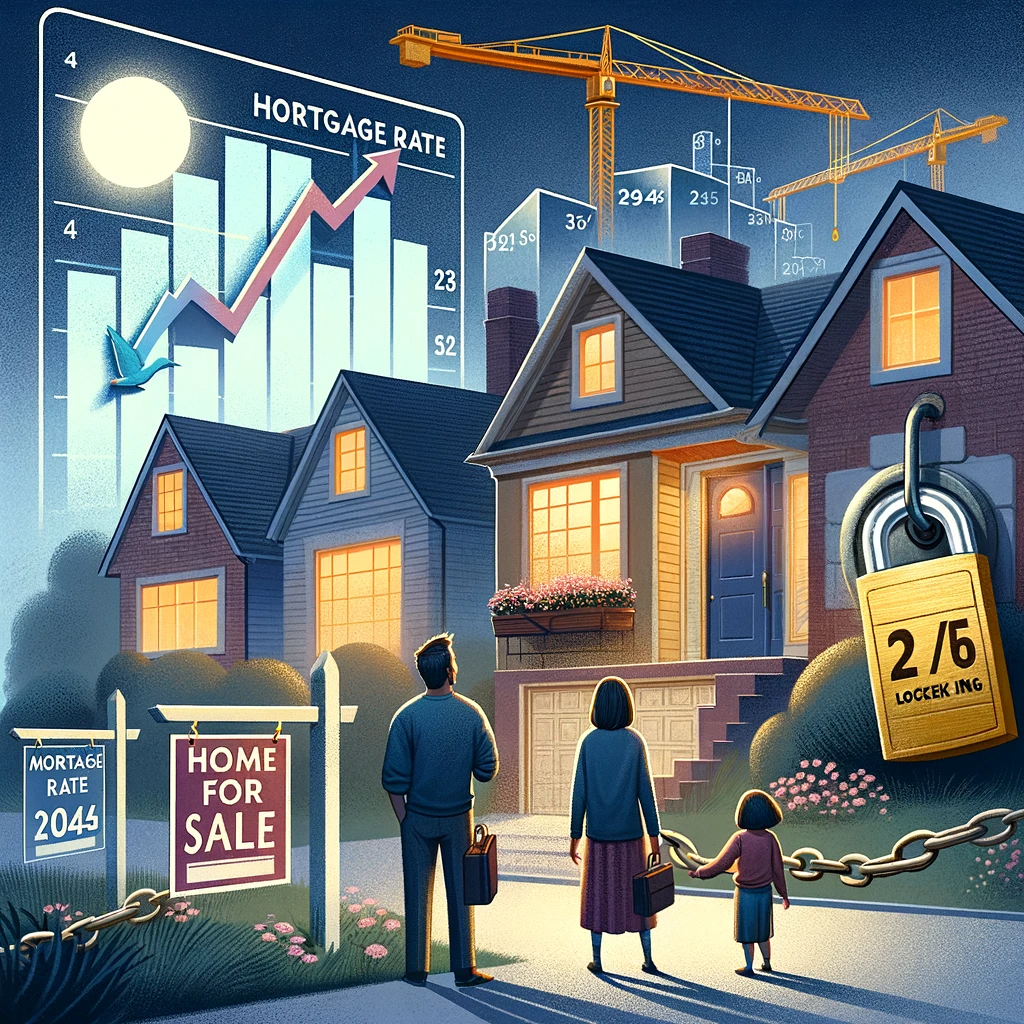The Untapped Potential of Virtual Reality in Real Estate Marketing
The Digital Transformation in Real Estate
The real estate industry has always been about location, location, location. But in today's digital age, it's also about innovation, innovation, innovation. While traditional marketing methods like open houses and print ads still have their place, cutting-edge technologies like Virtual Reality (VR) are setting a new standard in the industry. In this four-part series, we'll delve into the untapped potential of VR in real estate marketing.
Why Virtual Reality?
Virtual Reality is no longer the stuff of science fiction. It's a tangible, practical tool that has applications in various industries, including real estate. Imagine being able to walk through a property without actually being there. With VR, this is not just possible; it's becoming the norm.
The Immersive Experience
What sets VR apart from other technologies is its ability to provide an immersive experience. Unlike 2D photos or even 3D walkthroughs, VR places potential buyers inside the property, giving them a 360-degree view of every room. This level of immersion can be a game-changer in terms of engagement and emotional connection to the property.
Cost-Effectiveness
While the initial investment in VR technology can be significant, the long-term benefits far outweigh the costs. Think about the time and money spent on traditional open houses, which often involve staging, refreshments, and printed materials. With VR, you can offer unlimited "open houses" at a fraction of the cost, accessible to anyone with an internet connection.
Global Reach
One of the most compelling advantages of using VR in real estate marketing is its global reach. Traditional marketing methods are geographically limited, requiring potential buyers to be physically present. VR eliminates this barrier, allowing international buyers to explore properties as if they were there.
Conclusion of Part 1
Virtual Reality is not just a flashy gimmick; it's a transformative technology that can revolutionize how we market properties. From providing immersive experiences to offering cost-effective solutions with a global reach, VR has a lot to offer. Stay tuned for Part 2, where we'll discuss how to implement VR in your real estate marketing strategy effectively.
Implementing Virtual Reality: A Step-by-Step Guide
Introduction to Part 2
In Part 1, we explored the untapped potential of Virtual Reality (VR) in real estate marketing. Now, let's dive into the practical aspects of implementing this groundbreaking technology into your marketing strategy.
Step 1: Assess Your Needs
Before diving into the world of VR, it's crucial to assess your specific needs. Are you targeting high-end properties where the immersive experience can make a significant impact, or are you focusing on rentals that may not require such an in-depth view? Understanding your target market will help you tailor your VR strategy effectively.
Step 2: Choose the Right VR Platform
There are various VR platforms available, each with its own set of features and pricing models. Some platforms are geared towards high-end, fully immersive experiences, while others offer more basic 360-degree tours. Research and choose a platform that aligns with your needs and budget.
Step 3: Create High-Quality Content
The effectiveness of your VR experience hinges on the quality of the content. This means investing in high-resolution cameras and possibly even drones to capture every angle of the property. Remember, the goal is to make the virtual tour as close to reality as possible.
Step 4: Integrate with Existing Marketing Channels
Once your VR content is ready, the next step is to integrate it into your existing marketing channels. This could mean embedding the VR tour on your website, sharing it on social media, or even incorporating it into email campaigns. The more visibility your VR content gets, the higher the engagement.
Step 5: Train Your Team
Implementing a new technology means ensuring that your team is well-equipped to handle it. This involves training sessions and perhaps even hiring experts in the field of VR. A well-trained team can be the difference between a successful VR campaign and a failed one.
Step 6: Monitor and Tweak
Like any marketing strategy, it's essential to monitor the effectiveness of your VR campaign. Use analytics to track engagement, time spent on the VR tour, and conversion rates. Based on this data, you can tweak your strategy for better results.
Conclusion of Part 2
Implementing Virtual Reality in your real estate marketing strategy may seem daunting, but with careful planning and execution, it can offer unparalleled benefits. In Part 3, we'll look at some case studies that demonstrate the real-world impact of VR in real estate marketing.
Real-World Impact: Case Studies on Virtual Reality in Real Estate
Introduction to Part 3
In the previous parts, we discussed the untapped potential and practical implementation of Virtual Reality (VR) in real estate marketing. Now, let's look at some real-world examples that demonstrate how VR can make a significant impact on your business.
Case Study 1: The Luxury Condo Sale
A high-end real estate firm decided to incorporate VR into their marketing strategy for a new luxury condo development. They invested in a fully immersive VR experience that allowed potential buyers to virtually walk through the property, customize finishes, and even experience different times of day. The result? A 25% increase in pre-sales compared to traditional marketing methods.
Case Study 2: The Cross-Country Move
A family relocating from New York to California used VR tours to narrow down their property choices. This not only saved them time but also reduced the stress associated with long-distance house hunting. They were able to make a confident buying decision without setting foot in the state.
Case Study 3: The Commercial Property Investor
An investor was interested in a commercial property but was unable to visit the location due to travel restrictions. The real estate firm offered a comprehensive VR tour, including a virtual meeting with a local market expert. This level of detail and personalization convinced the investor to go ahead with the purchase.
Case Study 4: The Busy Professional
A busy professional with limited time for property visits found her dream home thanks to a VR tour. The virtual experience allowed her to explore the property at her own pace, revisit specific rooms, and focus on details that mattered to her. She made an offer on the property without requiring multiple physical visits.
The ROI of Virtual Reality
While the initial investment in VR technology can be significant, the return on investment (ROI) can be substantial. From increased engagement and quicker sales cycles to reduced marketing costs, the benefits are manifold.
Conclusion of Part 3
These case studies demonstrate that Virtual Reality is not just a flashy gimmick but a powerful tool that can revolutionize your real estate marketing strategy. In Part 4, we'll discuss the future of VR in real estate and how you can stay ahead of the curve.
The Future is Virtual: Staying Ahead in Real Estate Marketing
Introduction to Part 4
We've discussed the potential, practical applications, and real-world impact of Virtual Reality (VR) in real estate marketing. Now, let's look at what the future holds and how you can prepare for it.
The Next Wave of VR Technology
As technology continues to evolve, so will the capabilities of VR. Imagine a future where AI-powered VR experiences can predict and adapt to user behavior, offering personalized property recommendations based on real-time interactions. This level of personalization could be a game-changer for real estate marketing.
Virtual Reality and Augmented Reality: A Perfect Marriage
The integration of Augmented Reality (AR) with VR offers even more exciting possibilities. For instance, potential buyers could use AR to place their own furniture within a VR property tour, offering a truly immersive experience that could drive quicker decision-making.
The Role of 5G in Enhancing VR Experiences
The rollout of 5G networks will significantly improve the quality and speed of VR experiences. Faster and more reliable internet will allow for more complex and interactive VR property tours, making it easier than ever to engage potential buyers.
Staying Ahead: Tips for Real Estate Professionals
- Invest in Quality: Don't cut corners when it comes to VR technology. A high-quality VR experience can make all the difference in how your property is perceived.
- Continuous Learning: Stay updated with the latest advancements in VR and related technologies. This will help you offer the most cutting-edge experiences to your clients.
- Collaborate: Consider partnering with tech companies and VR specialists to create unique and compelling real estate experiences.
The Future is Now
Virtual Reality is not a passing trend; it's the future of real estate marketing. By embracing this technology now, you position yourself as a forward-thinking professional, ready to offer unparalleled experiences to your clients. The future is virtual, and it's time for you to be a part of it.



FAQ
-
What is Bibit?
Bibit is an AI-powered Real Estate Marketing AI designed to enhance the efficiency and effectiveness of real estate marketing and sales. It can help create listings, descriptions, and property content, and offers a host of other features.
-
How can Bibit help my real estate business?
Bibit can assist in various areas such as creating improved AI Property Listings, researching and writing AI Housing Market Analysis reports, creating social media posts, drafting emails for client communication, creating advertising descriptions for your brand, scripting property tours, and generating property descriptions in multiple languages.
-
How does the Bibit chatbot work?
Bibit chatbot uses AI technology to communicate with users, answer their queries, and assist with their needs. You can customize the chat prompts to suit your unique requirements.
-
What are the different plans Bibit offers?
Bibit offers 2 plans: Essential and Advanced. Each plan provides different features and character limits, catering to different user needs and budgets.
-
What languages does Bibit support?
Bibit can generate property descriptions in 50+ languages, making it easier for you to reach a wider audience.
-
Is Bibit easy to use?
Yes, Bibit is designed to be user-friendly. It is easy to navigate and offers human support for any issues you may encounter.
-
Bibit VS Chat GPT
Although both Bibit AI and GPT (Generative Pretrained Transformer) are developed with AI and natural language processing technologies, there are key differences between the two based on their design, purpose, and application.
Industry Specialization: Bibit AI has been specifically designed for the real estate industry. It comes with features tailored for real estate tasks, such as creating AI Property Listings, conducting AI Housing Market Analysis, formulating Real Estate Investment strategies, etc. On the other hand, GPT is not industry-specific. It's a general-purpose language processing AI model that can generate human-like text based on any prompt without specific domain optimization.
Task Efficiency: Because of its specialization, Bibit AI can more efficiently handle specific tasks in the real estate sector, providing industry-specific insights and content. GPT, while versatile, might not perform these tasks as efficiently without extensive fine-tuning.
Templates and Customizability: Bibit AI offers a vast range of pre-made templates adapted for real estate. It also offers capabilities of custom-trained bots and custom-trained bot libraries in its higher-end plans, giving companies the flexibility to cater to their unique business needs. GPT's customizability usually depends on the specific platform harnessing its technology.
Chat Function: GPT can be used to build chatbots that can generate human-like text for any general conversation. The chat functionality in Bibit mimics real human interactions, making conversations feel natural. However, Bibit's AI chat is again more optimized for use within the scope of the real estate industry.
Language Support: Bibit supports content generation in over 20 languages, catering to international real estate markets. GPT also supports multiple languages, but in reality, its performance may significantly vary between languages.
In summary, while both tools serve to streamline tasks using AI, Bibit AI is a more specialized tool designed exclusively for the real estate industry, which sets it apart from a general-purpose text generation model like GPT.
Embrace the Future with Bibit Today?
Enjoy 1000 word access during our 7-day trial period.








